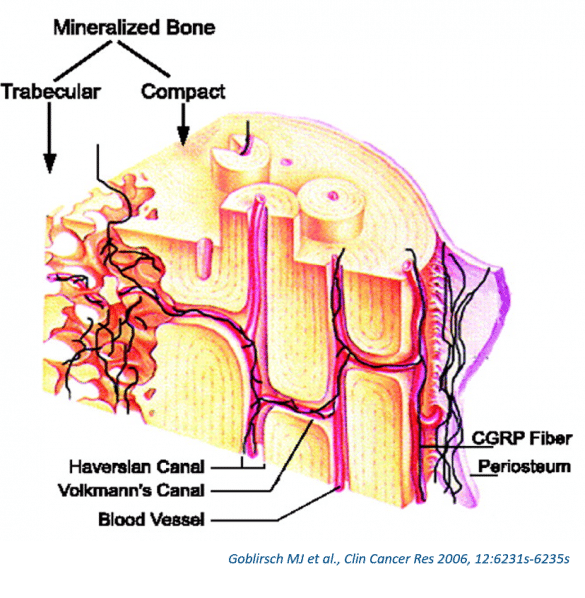Attentive to clients’ needs, ANS Biotech has developed a preclinical model of bone cancer pain that mirrors human bone metastases.
Bone is a privileged site of metastases for large primary tumors. After the lung and the liver, the skeleton is the most common site where cancer cell metastases are diagnosed and about 70% of patients with an advanced prostate or breast cancer present with bone metastases.
In fact, in two-third of patients, the presence of bone metastases is associated with a decrease in the quality of life as a result of severe pain, fractures and other skeletal events. Adequate management of pain is essential in an optimal treatment regimen, taking into account the impact of pain on daily activities and psychological state in patients with metastatic bone disease.
Animal models are indispensable to investigate the pathogenesis of bone metastases in vivo and to conduct preclinical pharmacological trials. Most animal models of mammary and prostate carcinoma in rats and mice do not easily metastasize to bone. This is the reason why most preclinical studies use local inoculation of cancer cells directly into the tibia or femur.
For large primary tumors, bone is a privileged site of metastases. After the lung and the liver, the skeleton is the most common site where cancer cells metastases are diagnosed and about 70% of patients with an advanced prostate or breast cancer present with bone metastases.
In two-third of patients, the presence of bone metastases is associated with a decrease in the quality of life due to the accompanying severe pain, fractures and other skeletal events. Consequently, adequate management of pain is essential in optimal treatment, taking into account the impact of pain in daily activities and the psychological state of patients with metastatic bone disease.
Animal models are indispensable to investigate the pathogenesis of bone metastases in vivo. Most animal models of mammary and prostate carcinoma in rats and mice do not readily metastasize to bone which is why most preclinical studies use local administration of cancer cells directly into the tibia or femur.
At ANS Biotech, this model consists of an MRMT-1 cell inoculation directly into the medullary cavity of the tibia.

